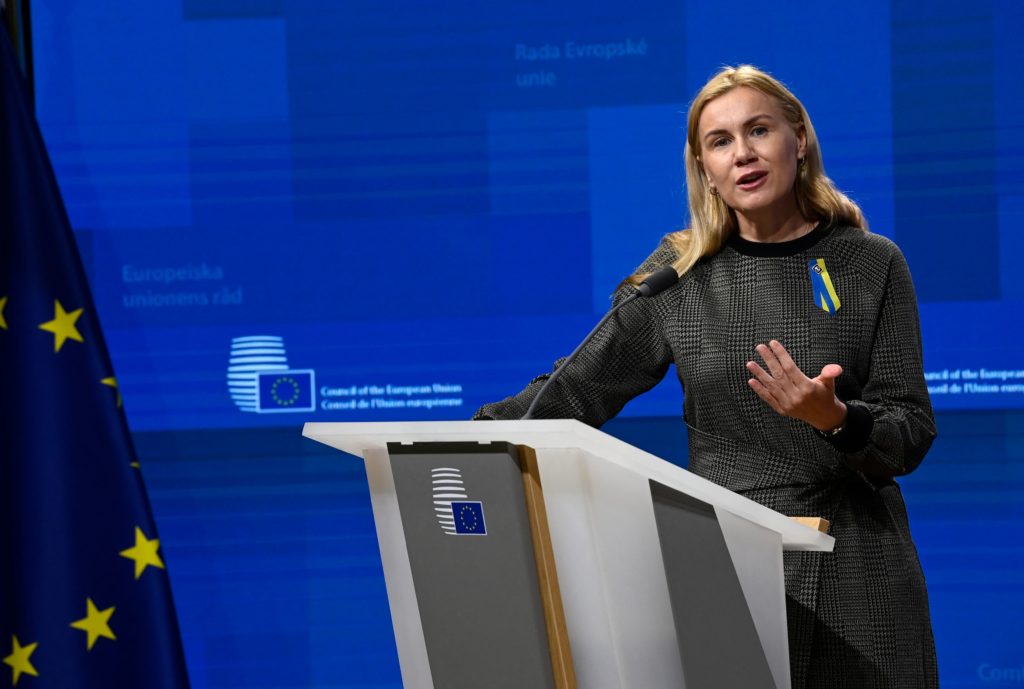The EU’s energy crisis response is getting bigger, slowly. But so, too, is the threat posed by Russia’s freeze on Europe’s gas supply.
A new package of measures to bring down the price of gas and protect consumers this winter and beyond — including plans to fully leverage the EU’s collective buying power — will be formally proposed by the European Commission next week.
But there remains uncertainty about key aspects of the package — including whether the preferred intervention of many countries, an EU-wide cap on gas prices, will be part of it, and if so, in what form. It could also take until November to get next week’s proposals fully signed off and operational, officials said.
Even as energy ministers deliberated over the measures in Prague on Wednesday, Russia issued new, veiled warnings about the depths of Europe’s vulnerability.
Speaking at an energy conference in Moscow, the head of Gazprom Alexey Miller warned European homes could still freeze this winter even though EU countries have nearly filled their gas storage capacity.
At the same event, Vladimir Putin discussed the sabotage of the Nord Stream pipelines — an act that many Western governments suspect was the work of Russia. Then he added pointedly that the incident had shown how “any critical infrastructure in transport, energy or communication infrastructure is under threat — regardless of what part of the world it is located, by whom it is controlled, laid on the seabed or on land.”
Noting that one of the pipelines is still potentially operational after the attack, Putin insisted Russia was ready to send gas through it to ease Europe’s pain this winter — bringing his overarching strategy of gas blackmail against Europe right up to date.
“The ball, as they say, is on the side of the European Union. If they want it, let them just open the tap,” Putin said. “We are ready to supply additional volumes in the autumn-winter period.”
Putin may still be hoping that when the reality of winter without Russian gas begins to bite, European governments will be more open to such overtures — and more willing to rein in support for Ukraine in exchange for an energy lifeline.
For the EU’s part, Energy Commissioner Kadri Simson was clear that while the bloc faced “difficult times,” countries would withstand the challenges ahead if they “act together, decisively and in solidarity.”
Speaking at the close of an informal summit of EU energy ministers on Wednesday, she added that the next crisis package will also contain a proposal for a new benchmark price for gas and further measures to reduce demand across the bloc.
But while a row over capping the price of gas has dominated the debate in recent weeks, momentum has shifted to the idea of joint purchasing on the international market. It is hoped that through this measure the bloc can avoid the situation seen this year when member states outbid one another for supplies when filling gas storage facilities — driving up the price for all.
European Commissioner for Energy Kadri Simson | John Thys/AFP via Getty Images
In an informal policy paper issued on Wednesday, Germany and the Netherlands set how such a measure could work, by beefing up the existing EU Energy Platform, which was established months ago but then barely used. Efforts to buy gas jointly should be coupled with better EU-wide coordination of gas storage next year, the German and Dutch paper said.
The proposals point to the extent to which the EU is no longer simply planning how to survive this winter without rolling blackouts. It’s now firmly planning for a crisis next winter too.
Executive Director of the International Energy Agency Fatih Birol, who also attended Wednesday’s summit in Prague, warned ministers that “the next winter may well be even more difficult.”
That message was echoed in a sobering briefing from the EU Agency for the Cooperation of Energy Regulators, which outlined how challenging 2023 and potentially 2024 could be for the bloc’s energy supply. Amid an expected surge in demand in Asia for liquefied natural gas (LNG), the EU will face greater competition for limited LNG supplies from sources such as the U.S. and Qatar.
In short, every molecule of gas that remains in European storage after this winter might be vital — and Vladimir Putin knows it.
Victor Jack and America Hernandez provided additional reporting.




